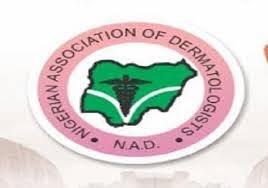Korede Abdullah in Lagos
With unlicensed cosmetic clinics springing up across Nigeria and unsafe skin procedures leaving countless victims with life-threatening complications, health experts have called for urgent reforms to protect Nigerians from unsafe procedures.
This call was made at the annual conference of the Nigerian Association of Dermatologists (NAD) in Lagos, themed “Bridging the Gap: Dermatology and Global Health.”
Special Adviser to the Lagos State Governor on Health, Dr. Kemi Ogunyemi lamented, “Many Nigerians are unaware of the dermatology specialty and often patronise spas and cosmetologists who offer medical procedures like buttocks injections without the requisite qualifications,” warning that young women have paid with their lives for such unsafe treatments.
Lagos State Commissioner for Health, Prof. Akin Abayomi, highlighted plans to tackle this crisis through expanded training and tighter regulation.
“We cannot multiply subspecialists like dermatologists if our base pool of doctors remains small,” he said, revealing that the state is working to pass a law establishing a dedicated university of medicine to produce up to 2,000 new doctors annually.
He added that the Lagos State Health Facility Monitoring and Accreditation Agency is stepping up inspections of aesthetic clinics to clamp down on quack operators.
“A subcommittee of dermatologists is working with the government to define the legal and procedural limits for non-doctors engaged in cosmetic services,” he said.
Experts including Dr. Ifedayo Adetifa and Emeritus Prof. Yetunde Olumide stressed that dermatology must be integrated into Nigeria’s primary healthcare system and universal health coverage.
The NAD President, Prof. Dasetima Altraide, warned, “Most of these people practising are quacks… it is when they’ve destroyed the skin that they now send people to us.”
He urged Nigerians to patronise only licensed clinics. Stakeholders agreed that increasing public awareness, expanding training, and enforcing strict regulation are vital to stop dangerous skin practices and ensure dermatology gets the recognition and resources it deserves.



